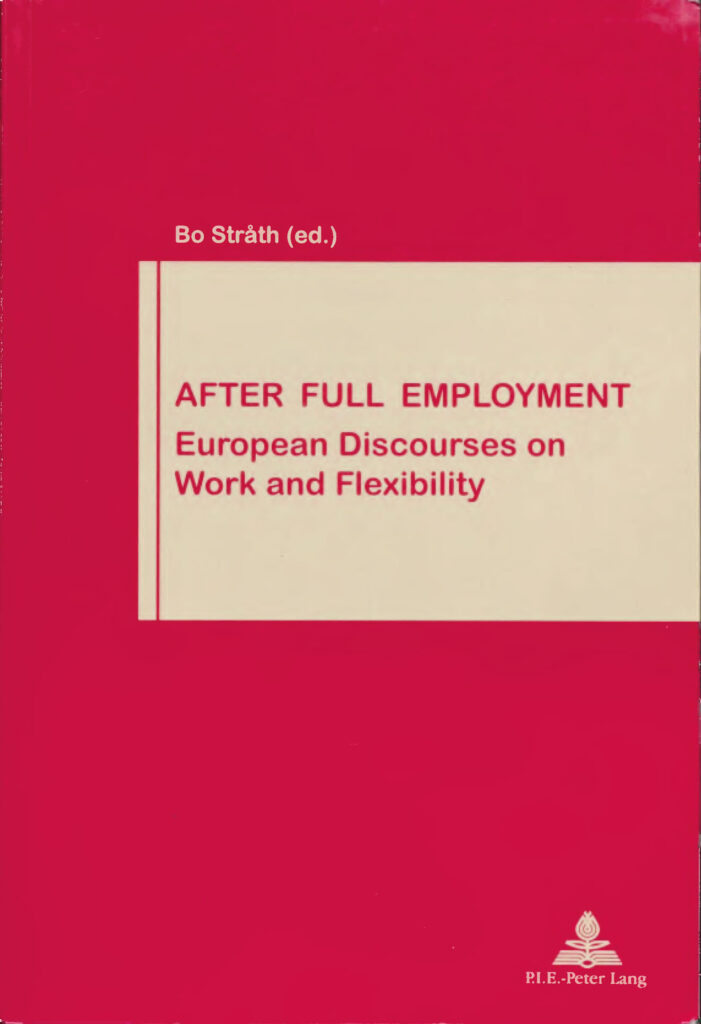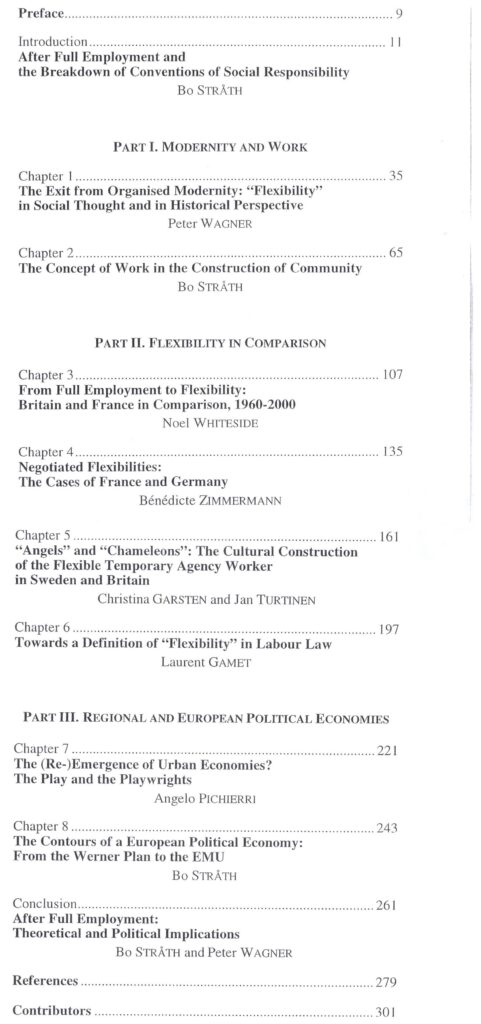European Discourses on Work and Flexibility

Bo Stråth (ed.), After Full Employment. European Discourses on Work and Flexibility. PIE-Peter Lang, Brussels 2000
Abstract
The framework of this book is the structural mass unemployment and social marginalisation that have haunted Europe since the 1970s. Unlike previous studies, however, this book does not concentrate on the causes that led to this situation but focuses on the transformation of our interpretative frameworks and how societies have tried to come to terms with this development. Key questions involved are: How did the paradigmatic shift in the prescriptive language of economists come about when Keynes was abandoned, and the neo-liberal rhetoric took over? How did the idea of full employment give way to the flexibility discourse?
The contributions assembled in this volume address substantive aspects of the concepts of work and flexibility. Various issues are discussed from a comparative perspective, such as labour market organisation, legal regulation (rather than deregulation), and regional cooperation and bargaining over the resources within the European Union.
The book is based on a research project in the Robert Schuman Centre and the History Department of the European University Institute 1997-2000.
Contents





































